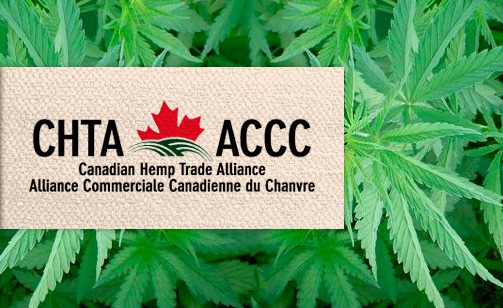The Canadian Hemp Trade Alliance (CHTA) has again lashed out at Health Canada, the government’s health agency, for its continuing refusal to expedite hemp production permits despite requests for change dating back seven years. CHTA has been pushing for changes to what it calls “outdated and unnecessary regulations which are seriously curtailing the growth” of Canada’s hemp industry.
“The situation is untenable. Our farmers are suffering financially and value added revenue opportunities are not being developed,” said Kim Shukla, Executive Director of CHTA — which, for example, cites the Canadian hemp industries’ inability to capitalize on new market opportunities in South Korea despite Canadian efforts that have set formal trade relations with that country. Health Canada essentially ignored a CHTA request last spring specifically looking to capitalize on the South Korean market.
“The loss in farm-gate revenue was about $9 million and flies in the face of the good work done by Export Canada,” said CHTA President Russ Crawford.
In the latest brushoff of the CHTA by Health Canada, the agency cancelled an appearance by Health Minister Jane Philpott at the annual Alliance conference last week in Saskatoon, Saskatchewan — leaving a gap in the conference program that was ultimately filled with a session critical of Health Canada before other supporting Canadian agencies — Ag Canada, the Canadian Food Inspection Agency (CFIA) and the Canadian Seed Growers’ Association (CSGA) — who were in attendance, sources told HempToday.
Frustrated producers point out that the government moved to change the laws on marijuana because the majority of the population felt that the current laws are unreasonable and have become unenforceable, and point to the current situation in which it is easier to buy marijuana seed than hemp in Canada. The industry has been outspoken in its request that hemp not be bundled with marijuana in a “cannabis file” as the government’s Task Force on Marijuana makes its recommendations. Hemp is different than marijuana and does not require the same degree of regulatory oversight, CHTA notes.
While Philpott declined to address the CHTA conference, Health Canada issued a statement on its priorities regarding industrial hemp that noted: “While the early focus (regarding hemp) was on identifying possible efficiencies, the regulatory requirements are now being more broadly assessed to ensure that they are commensurate with any potential health and safety risks that may be associated with industrial hemp.”
Yet Health Canada failed to indicate “what any of those possible risks could be or when meaningful change might be made,” CHTA said, noting that the Canadian government moved to change the laws governing marijuana primarily based on a majority feeling among the public that those laws had become unreasonable and unenforceable.
For now, CHTA says it’s board is looking at a more aggressive approach to provoke change — by simply ignoring Canadian hemp rules.

